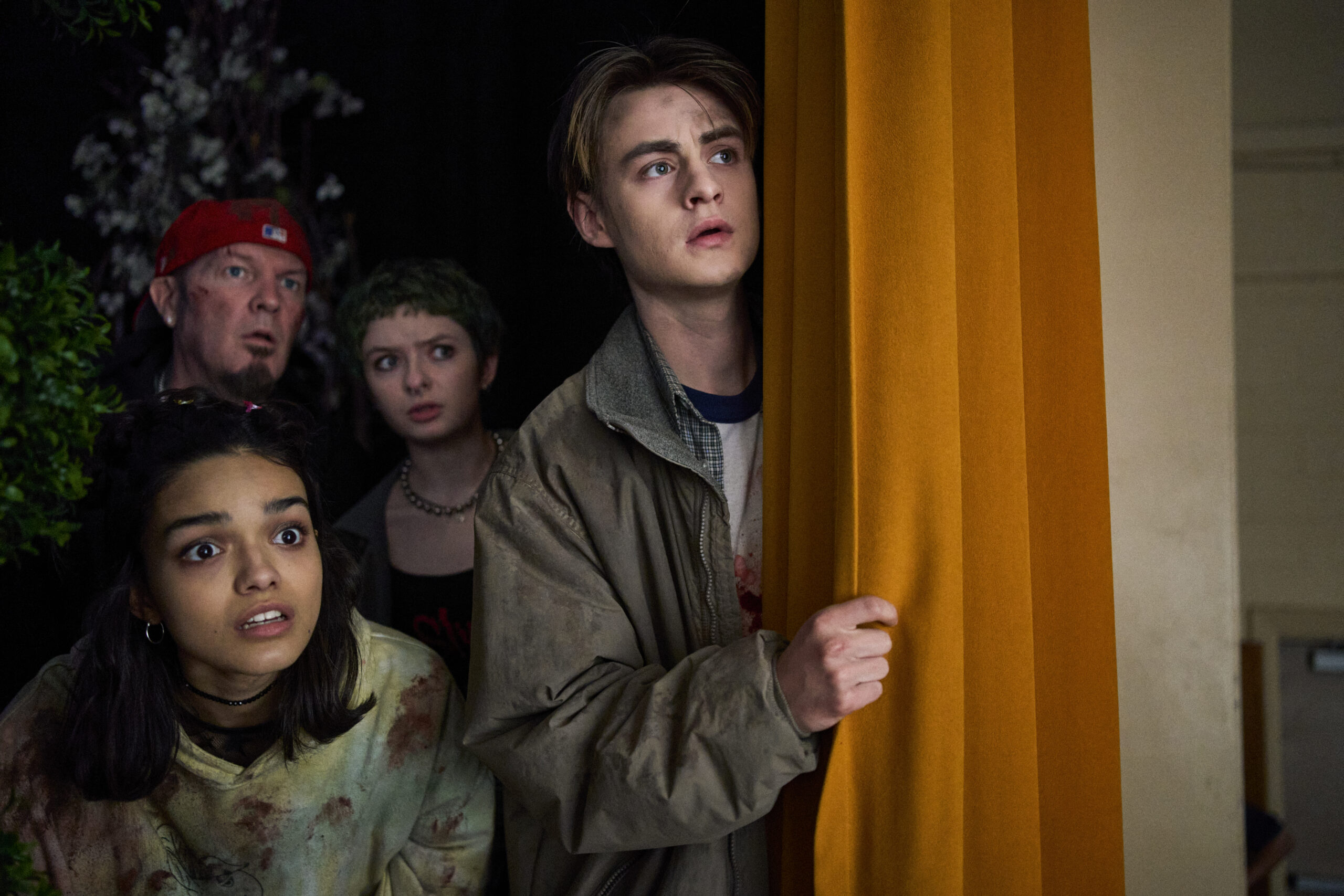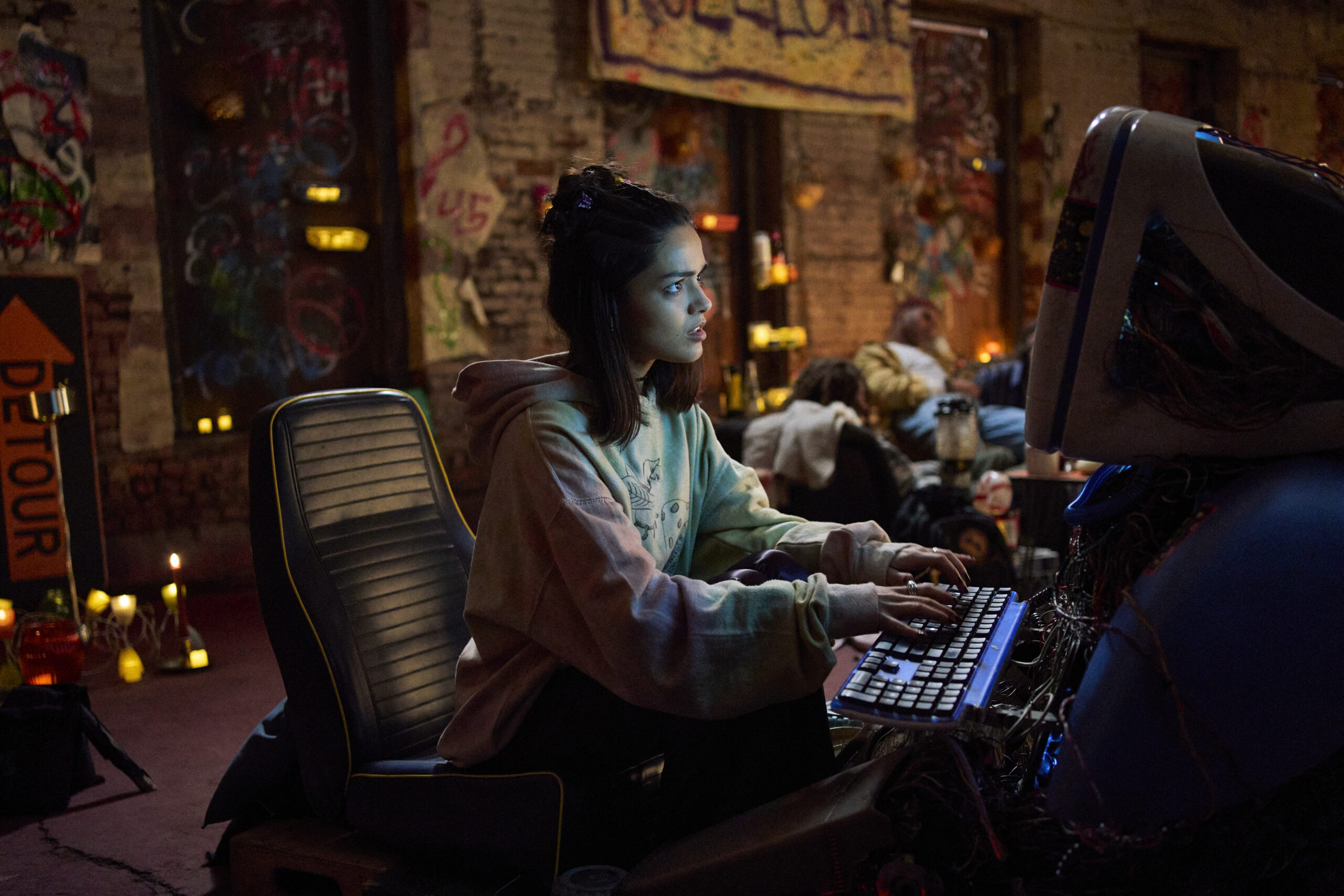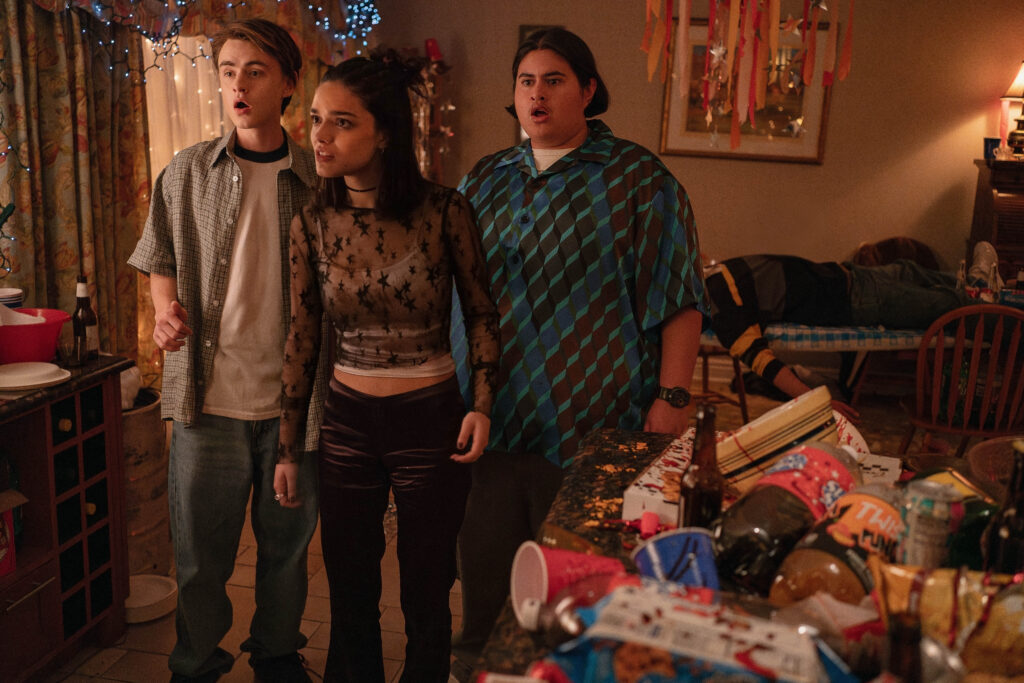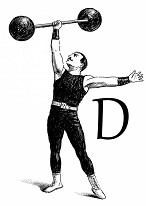There have been many films in which their directors comment about their childhoods or a specific time in their lives that they are nostalgic for. The great majority of these films are run-of-the-mill coming-of-age narratives. However, when creative elements are attached to the story, instead of trying to recapture a lost feeling or time, it catches the viewer’s attention more effectively. That is what A24’s latest release, “Y2K,” is trying to do with nostalgia for the late ’90s and the early 2000s. “Saturday Night Live” alumni and director Kyle Mooney uses his affinity for the time to create some horror concoctions based around the titular faux phenomenon that many people thought would happen yet didn’t.
Apparently, on New Year’s Day, 1999, when the clock struck twelve and the new millennium began, all electronics would come to life and rebel against humans, commencing the end of the world. That is what “Y2K” uses as its central narrative gadget. However, there is a dedication, for better or worse, to infuse the modernity of filmmaking with the aesthetic of that period, seen from the clothing the characters use to the soundtrack choices. The style of ’99 and the 2000s come alive for one quick ninety-minute project, where Mooney cashes in his remembrance tokens through the absurdity of his deadpan comedic sensibilities and awkward punchlines. He takes the mickey out of it all to reflect on what once was, deliberately expressing that those years are special to him, hence centering a project around an “event” that culminated the era.
Kyle Mooney goes on a nostalgic trip while dissecting the culmination of the ’90s. But he does so on his own accord, with a modernist approach and dated jokes. This is a combination that makes you question who the project is for. Is it for the young kids who are now learning about Y2K music and clothing styles? The people who grew up during the time? In that division of nostalgia, creativity, and aimlessness lies the downfall of “Y2K,” slipping away as it goes into a laughless heap of hectic concoctions and gags that exhibit themselves like the video shorts Andy Samberg, Will Forte, and Bill Hader used to do in “SNL” back in the late 2000s, yet without the wit, charisma, or slapstick comedy. “Y2K” fails to weave its references or callbacks into a coherent narrative, feeling like a series of disconnected sketches rather than a fully realized film.
Notes of ‘Superbad’ in Kyle Mooney’s Directorial Debut
“Y2K” starts as a story about two friends, Eli (Jaeden Martelli) and Danny (Julian Dennison), who want the school year to be over. They struggle in high school just like you’d expect a protagonist of a teen party flick to be. The two seem to match the energy of the “Superbad” duo of Michael Cera’s Evan and Jonah Hill’s Seth, although they don’t have a Fogell (or McLovin) to complete the trio of outcasts. One of them is shy; the other is more brash and open. Eli and Danny complete each other and crawl through the popularity ladder of high school with difficulty, yet together–if one does not take a step, the other stays put, and vice-versa.
Their chemistry and relationship are not the only resemblances to the dated yet instantly quotable Judd Apatow production. There are more where they came from. Eli and Danny are going to a big end-of-semester party on New Year’s, thrown by the popular soccer team players, where booze is unlimited and “bada$$” mixes (featuring Sisqo’s “Thong Song”) bump into the speakers. Danny wants Eli to break out of his shell and talk to the love of his life, Laura (Rachel Zegler), to which he can’t utter a word and remains still during any social event encounter, except via an internet chatroom where he adopts a more open persona. (Immediate callbacks to Evan and Becca’s situation immediately arise.)

Meanwhile, Danny is a scene stealer at the party. He’s a bit more extroverted and daring than Seth. The two could be paired due to their personalities and brash reactions. They are the sidekick a shy hero needs, one that uplifts them to finally express themselves, even though there are some extremes to this journey of self-expression. Upon arriving at the party, where you see everyone divided into their groups and cliques, Danny and Eli separate themselves to complete their respective party sidequests. As Danny shows off his dance moves and pumps up the crowd, Eli stays in the corner or wanders around the house in search of something that piques his interest. And the only thing that does such is Laura. He can’t take her out of his mind.
Mechanical Kills with Good Splatter and Repetitive Punchlines
Laura has a college-attending boyfriend, lowering Eli’s chances to be with her. However, as we have learned from these types of flicks, the outcast will have his way sooner rather than later. Our shy hero, although as a character very disinteresting (and that goes for the great majority of them if not all), will meet his goals amidst the party chaos and the rest of the apocalyptic shenanigans that occur. He becomes a more confident person as the boozy night goes on. When midnight strikes, Eli will have a chance to kiss the crush of his dreams. But everything goes haywire, literally and figuratively. Technology comes to life via the rumored Y2K phenomenon that everybody dismissed as a joke.
From Tamagotchi to mechanical beds, these electronics are walking around, killing everybody on sight in hectic ways that Mooney creatively concocts, using the ’80s cult classic “Chopping Mall” as a reference, yet without the charm, wit, or the decade’s sleaze practicality. Most of the party attendees are slashed, stabbed, or burned alive. And none of it feels rather exciting or laugh-inducing. It is constructed with a tonal manipulation of forced laughter. These kills’ oddball, out-of-the-blue surprises may churn out a chuckle or two. “Y2K” does not build itself to that point previously. Everything occurs rapidly and without reason other than to create mayhem and splatter before getting into the film’s heart later. The house party survivors must find a way to save the world, another cliched narrative thread lacking originality or vision.
These gnarly demises do have sparks of ingenuity. Somebody had to think about how these electronics would carry out their respective murders. A couple seem built out of convenience to create disparity among them. But others are very crafty and somewhat savvy. Even though Mooney does not handle the mayhem properly, the kills are well thought-out. Well, at least in the first segment. The rest of “Y2K” is a mashup of stories that have functioned well independently, not in unison. “Attack the Block” and the modern “Ghostbusters” flicks come to mind positively and negatively. The party survivors roam the city to save the day from unforeseen technological forces.
Expanding the Canvas to Head onto Weaker Territories
The issue lies not only in repeating the same joke being told repeatedly, like a scratched record, but also in the characters needing to be more interesting and have intriguing arcs. Even worse, they lack personality. They are gag machines with no emotional or psychological tenures. These characters rely on references from the late ’90s to define themselves. Most of their remarks and quips revolve around a specific callback. It reiterates the director’s remembrance induced by folly instead of putting creative thought into what defines them. Adults who grew up during that time might look and reminisce a bit about what once was. However, if your sole reason for a film’s purpose is to do that, you have lost the train.

With flat characters and even flatter jokes, “Y2K” only relies on remembrance to try and capture one’s attention. The first segment of “Y2K” is the most promising one. It uses the claustrophobic sections of the house as a playground for horror concoctions and comedy bits with well-executed punchlines if dispersed throughout a ninety-minute runtime. It could have been similar to the aforementioned “Chopping Mall” but with a twist. Something gets in the way of the film becoming such. The need to expand the canvas and setting strips the narrative from its B-movie roots and cartoonish design.
The film loses sight of itself when the characters are out of the party, much like in M. Night Shyamalan’s “Trap” with the concert. And it keeps forward with no direction. Its procedure is almost like a lengthy set-up for a joke, and there’s an acceptable punchline. However, once it arrived, everyone was lost and tired of perceiving it with its comedic pull. The more contained “Y2K’ is, the more effective it is. Mooney extends this concept into a prolonged sketch with that lacks comedic punch or texture. Nevertheless, a gag is only as good as the set-up. Unfortunately, it was lackluster and without proper characters rather than faceless heroes.
“Y2K” hit theaters across the U.S. on December 5th, 2024.



